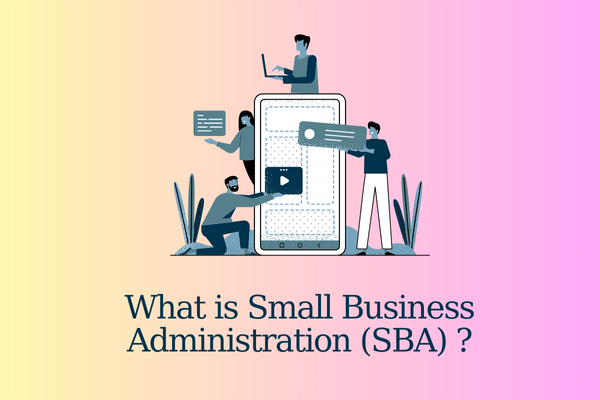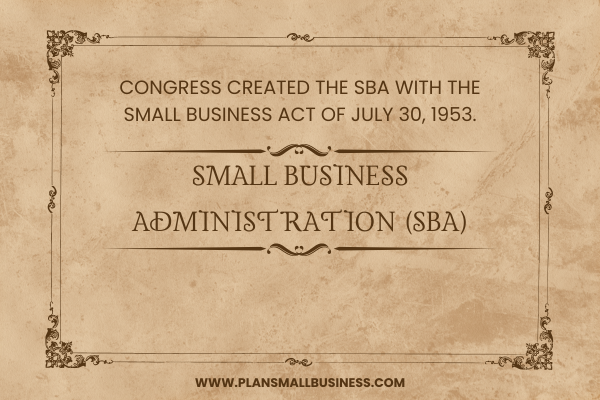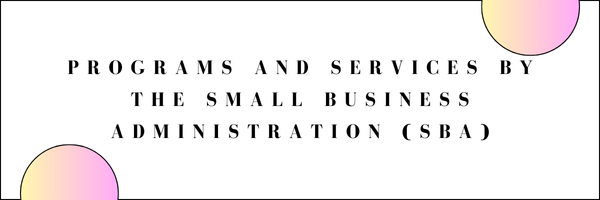What is Small Business Administration (SBA) ? Your Guide to Business Growth


Table of Contents
Introduction
Curious about What is Small Business Administration (SBA) ? Maybe you’re thinking about starting your own small business, or perhaps you’re already running one and wondering how the SBA can help you. Either way, you’ve come to the right place. Let’s dive into everything you need to know about the SBA, from what it is and what it does to how it can support your small business dreams.
What is Small Business Administration (SBA)?
The Small Business Administration, or SBA for short, is a U.S. government agency supporting entrepreneurs and small businesses. It was created to help Americans start, build, and grow businesses. The SBA offers various services, including funding, counselling, and government contracting, all aimed at fostering small business development and success.
Importance of Understanding the Small Business Administration (SBA)
Why should you care about the SBA? Well, if you’re a small business owner or planning to become one, understanding what the SBA offers can be a game-changer. The resources and support available through the SBA can help you navigate the complexities of starting and running a business, making your entrepreneurial journey a bit smoother and more successful.
History of the SBA
Origin and Founding
The Small Business Administration (SBA) was established in 1953 as part of the Small Business Act. The idea was to aid, counsel, assist, and protect the interests of small business concerns, to preserve free competitive enterprise, and to maintain and strengthen the overall economy of the nation.

Major Milestones
Over the years, the Small Business Administration (SBA) has seen numerous milestones. From disaster relief efforts to launching new loan programs, the SBA has continuously evolved to meet the needs of small businesses. Key moments include the introduction of the 7(a) Loan Program and the establishment of Small Business Development Centres (SBDCs).
Role and Purpose of the SBA
Mission and Vision
The mission of the Small Business Administration (SBA) is to support small businesses and entrepreneurs. This includes providing access to capital, offering entrepreneurial development programs, ensuring small businesses get their fair share of government contracts, and advocating for the interests of small businesses in the legislative process.
Key Objectives
The Small Business Administration (SBA) aims to:
- Increase access to capital through SBA-guaranteed loans and equity financing.
- Offer educational programs to build business acumen.
- Ensure small businesses have the opportunity to participate in federal procurement opportunities.
- Provide disaster recovery assistance to businesses affected by natural disasters.

Programs and Services by Small Business Administration (SBA)
Loan Programs
The SBA offers several loan programs designed to meet the varied needs of small businesses.
7(a) Loan Program
The 7(a) Loan Program is the SBA’s primary program for providing financial assistance to small businesses. It offers loans for various business purposes, including working capital, equipment purchase, and debt refinancing.
CDC/504 Loan Program
This program provides long-term, fixed-rate financing for major fixed assets such as land and buildings. It’s ideal for businesses looking to expand or modernize.
Microloan Program
The Microloan Program provides small, short-term loans to small businesses and certain types of not-for-profit childcare centres. These loans can be used for working capital or the purchase of inventory, supplies, furniture, and fixtures.
Grants and Funding
While the Small Business Administration (SBA) doesn’t provide grants to start or expand small businesses, it offers several grants for research and development, disaster recovery, and more.
Disaster Assistance
The SBA provides low-interest disaster loans to businesses of all sizes, private non-profit organizations, homeowners, and renters to repair or replace uninsured/underinsured disaster-damaged property.
Innovation and Research Grants
Programs like the Small Business Innovation Research (SBIR) and Small Business Technology Transfer (STTR) offer grants to small businesses engaged in research and development projects.
Counselling and Training
The Small Business Administration (SBA) offers extensive training and counselling services through various programs.
Small Business Development Centres (SBDCs)
SBDCs provide free business consulting and low-cost training to new and existing businesses.
SCORE
SCORE is a network of volunteer, expert business mentors dedicated to helping small businesses get off the ground, grow, and achieve their goals.
Women's Business Centres (WBCs)
WBCs provide free to low-cost counselling and training designed to help women start and grow their businesses.
Government Contracting
The SBA helps small businesses secure government contracts through several programs.
8(a) Business Development Program
The 8(a) Program helps small, disadvantaged businesses compete in the marketplace. It offers business development assistance and helps them gain access to government contracting opportunities.
HUBZone Program
The HUBZone Program encourages economic development in historically underutilized business zones through access to government contracting opportunities.
How to Apply for SBA Loans and Grants

Eligibility Criteria
To qualify for Small Business Administration (SBA) loans and grants, businesses must meet certain criteria, such as being a for-profit business, operating within the U.S., and having reasonable owner equity to invest.
Application Process
Applying for SBA loans and grants involves several steps, including gathering the required documentation, completing the application forms, and submitting them to the SBA or participating lenders. The process can vary depending on the specific program.
Success Stories of Small Business Administration (SBA) Beneficiaries
Real-life Examples
There are countless success stories of businesses that have thrived thanks to SBA support. For instance, a small tech startup might use an SBA loan to develop its product, eventually growing into a thriving enterprise.
Impact on Communities
SBA-supported businesses often have a significant positive impact on their communities by creating jobs, driving innovation, and contributing to local economies.
Challenges and Criticisms of the Small Business Administration (SBA)
Common Criticisms
Like any large organization, the SBA faces its share of criticisms. Common complaints include bureaucratic red tape, the complexity of the loan application process, and insufficient funding for some programs.
Addressing the Challenges
The SBA continually works to address these challenges by streamlining processes, increasing transparency, and advocating for more resources to support small businesses.
Future of the Small Business Administration (SBA)
Evolving Programs
The SBA is always evolving to better meet the needs of small businesses. This includes developing new programs, enhancing existing ones, and leveraging technology to improve service delivery.
Emerging Trends
Emerging trends such as the growth of e-commerce, the increasing importance of digital marketing, and the rise of remote work are influencing how the SBA supports small businesses.
Conclusion
The Small Business Administration (SBA) plays a crucial role in the success of small businesses across the United States. From providing much-needed funding to offering invaluable training and support, the SBA is a vital resource for entrepreneurs. By understanding what the SBA offers and how to take advantage of its programs, you can significantly enhance your chances of business success.
- You might be intrested to read this:
- Top Profitable Small Business Ideas
What is Small Business Administration (SBA) ? : FAQs
What is the primary function of the Small Business Administration (SBA)?
The primary function of the SBA is to support small businesses and entrepreneurs through funding, counselling, and government contracting assistance.
How can I find local SBA offices?
You can find local SBA offices by visiting the SBA website and using the office locator tool, which provides contact information and addresses for offices nationwide.
Are there any fees associated with SBA loans?
Yes, there are typically fees associated with SBA loans, including application fees, guarantee fees, and closing costs. However, these fees can often be rolled into the loan amount.
What types of businesses are eligible for SBA programs?
Most for-profit small businesses operating within the U.S. are eligible for SBA programs, provided they meet the size standards and other specific criteria of the program they are applying for.
How does the Small Business Administration (SBA) support minority-owned businesses?
The SBA supports minority-owned businesses through various programs, including the 8(a) Business Development Program and the HUBZone Program, which provide access to government contracting opportunities and business development resources.
2 comments